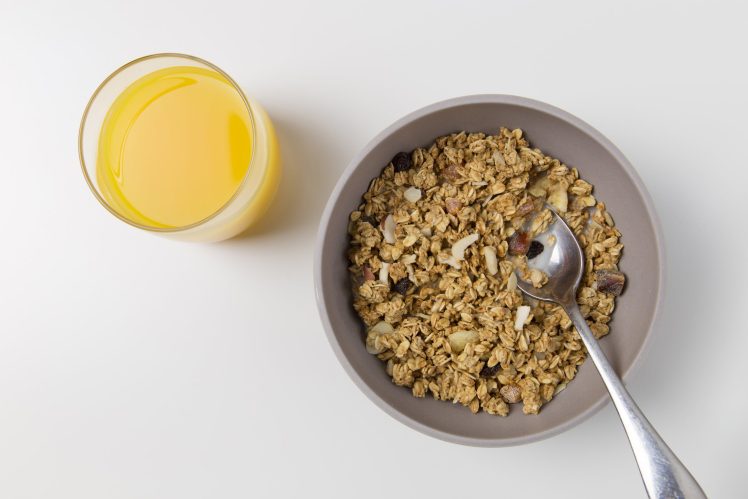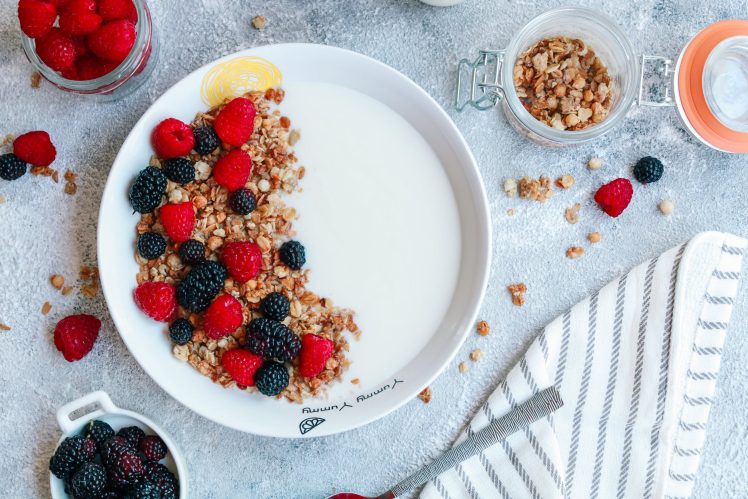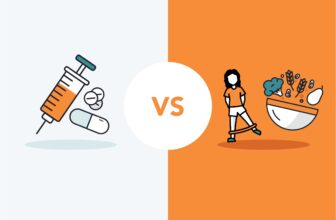
Digestion is the breakdown of high fermented foods to little intestine food molecules; in the order, they may be absorbed into the watery blood plasma.
There are plenty of variables that influence our digestion, such as travel, stress, spicy food, lack of sleep, anxiety, etc. And whether you often fight digestive difficulties or experience occasional discomfort, abdominal discomfort can range from inconvenient to unbearable.
Properly Chew Food

Source: pexels.com
Digestion is the process of breaking down food as you eat it into the smallest particles that can be absorbed into your body for nourishment.
That process begins with your mouth, and when you chew your food thoroughly, your stomach has less work to do when food reaches it.
This means food spends less time being broken down in your stomach because it’s already in small pieces by the time it gets there. This can also help prevent bloating.
Schedule Eating Time

Source: pexels.com
Digestion is hugely dependent on how much people eat. It’s triggered when food is consumed and melts down your stomach.
It is the digestion process in the start to diet or restricts our ingestion that will cause constipation. It may sound straightforward, but to digest, so we will need to eat.
This is recommends eating every four to six hours to help keep your body recovers and digestive tract going.
Stay Hydrated

Source: pexels.com
While many things can influence the amount of water you need to be drinking daily, one suggestion would be to take half of your body weight (in pounds) and convert it to oz. Therefore, if you weigh 200 pounds, you need to aim for 100 oz, 12 glasses of water every day.
To support healthful digestion, be sure you’re eating enough and drinking sufficient water. Staying adequately hydrated is incredibly vital for proper digestion. Water and other liquids help break down food so that your body can absorb the nutrients.
Eat Enough Fiber

Source: pexels.com
Fiber helps accelerate food to your large intestine. By eating foods with fiber, you are helping the digestive process along. Most dietitians recommend it to ingest 28 grams of fiber each day.
It’s important to consume both types of fiber, Insoluble, and Soluble because they help your digestive tract in different ways.
Soluble fiber draws in water and can assist in preventing stools that are too watery. Good insoluble fiber sources include wheat bran, vegetables, and whole grains; you can acquire soluble fiber from oat bran, seeds, nuts, and legumes.
Add Probiotics to your diet

Source: pexels.com
Probiotics are strains of beneficial bacteria that live in your digestive system. These bacteria are bacteria called “probiotics,” meaning for a lifetime.
These microscopic bugs Reside on your intestines where they create vitamins and short-chain fatty acids that feed and nurture other beneficial bacteria, are nonpathogenic, and straight give rise to healthy gut flora.
These bacteria aid in digestion, help prevent disease and reduce chronic inflammation.
Do Yoga or Exercise daily

Source: pexels.com
Regular yoga and exercise improve your digestion and it also helpful for overall body well-being. It makes you fit and the whole energetic day. Yoga also helps you to maintain body weight and to stay active.
This can be helpful for your digestive wellness. Make it a time to perform everyday exercise and yoga in your daily or weekly schedule.





